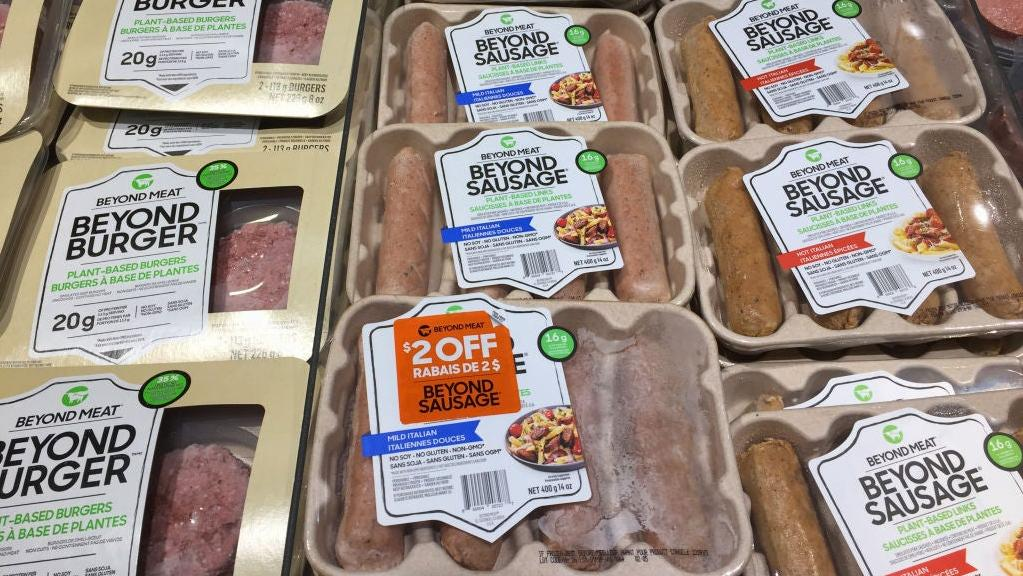Plant-Based Meat Doesn't Have The Same Nutrients As The Real Thing, New Study Shows
There are a lot of nutrients in beef that you can’t get in plant-based meat, and vice versa.
I have to admit, I'm a fan of plant-based meat substitutes, especially hamburgers. While Beyond, Impossible, et al. obviously aren't going to fool me into thinking I'm biting into a puck of grilled ground beef, the subs do help me reduce my meat intake a bit, and I'll chalk that up as a win. But I'm not going to lie to myself and say it's necessarily the much "healthier" choice; I'm well aware that fake meat can come from some seriously processed ingredients.
Researchers at Duke University did a deeper dive into the nutritional qualities of plant-based meat versus the four-legged versions and found that there are close similarities on the nutritional labels in terms of vitamins, fat, and protein, but when it comes down to the biochemical building blocks of metabolites in each, beef differs significantly from the meatless stuff.
"To consumers reading nutritional labels, they may appear nutritionally interchangeable," postdoctoral researcher Stephan van Vliet of the Duke Molecular Physiology Institute said in a press release. "But if you peek behind the curtain using metabolomics and look at expanded nutritional profiles, we found that there are large differences between meat and a plant-based meat alternative."
Metabolites help with many functions in the human body, such as signaling between cells and converting energy; about half our metabolites come from the food we eat. Beef had 22 metabolites that the plant-based substitute didn't provide, though the plant-based version had 31 that meat doesn't have. The metabolites that beef contains, however, are important to human well-being: glucosamine, creatine, and the omega-3 fatty acid DHA, all of which have anti-inflammatory and other physiological roles, according to the authors of the paper.
"These nutrients are important for our brain and other organs including our muscles," van Vliet said. "But some people on vegan diets (no animal products), can live healthy lives – that's very clear." He added, "It is important for consumers to understand that these products should not be viewed as nutritionally interchangeable, but that's not to say that one is better than the other. Plant and animal foods can be complementary, because they provide different nutrients."
Knowing this, I'll still be happily eating the plant-based substitute now and then. I'll just make sure to mix it up with other foods as much as I can. I'm still guilty of not eating enough fresh produce, so maybe I'll pile a salad on top of my burger next time.
